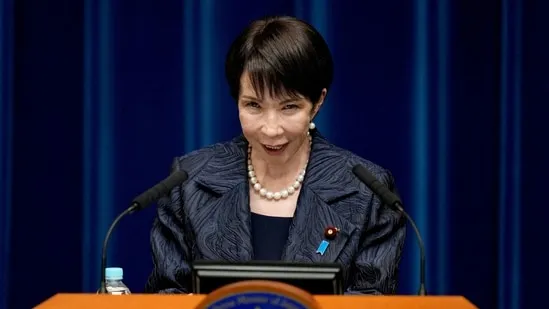China-Japan Relations Deteriorate Amid Taiwan Remarks by PM Takaichi

China and Japan are currently experiencing a significant diplomatic rift, arguably the worst in recent years, following remarks made by newly appointed Japanese Prime Minister Sanae Takaichi regarding Taiwan. This escalating situation has led to travel advisories for citizens and has severely impacted trade and tourism between the two countries.
The tension erupted after Prime Minister Takaichi stated before lawmakers that a Chinese military action against Taiwan could pose a threat to Japan's survival, potentially prompting a military response from Tokyo. His comments, made during a parliamentary session on November 7, marked a notable shift in Japan's stance, as he was the first sitting leader in decades to explicitly link the situation in the Taiwan Strait with Japanese military involvement. Takaichi remarked, "If an emergency in Taiwan entails battleships and the use of force, then that could constitute a situation threatening the survival (of Japan), any way you slice it," according to the Agence France-Presse.
In response to these statements, China issued a warning to its citizens, advising them against travelling to Japan due to the ongoing diplomatic tensions. The impact of this advisory has been immediate, with Tokyo-based East Japan International Travel Service reporting an 80 per cent decline in bookings for the remainder of the year. Yu Jinxin, vice president of the travel agency, described the situation as a significant loss for their business, which primarily caters to Chinese clients.
As the diplomatic exchange continued, the Chinese Foreign Ministry announced that it would take "stern and resolute countermeasures" if Japan does not retract Takaichi's remarks. The growing friction between the two nations is also reflected in military posturing, as both sides navigate their historical grievances and territorial disputes.
The issue of Taiwan is particularly sensitive for China, which regards the self-ruled island as part of its territory and has not ruled out the use of force to assert control. Japan occupied Taiwan from 1895 until the end of World War II in 1945, and the historical context continues to influence contemporary relations.
In a further escalation, an incident involving comments made by Xue Jian, China's consul general in Osaka, added fuel to the fire. Xue's now-deleted post on X, formerly known as Twitter, contained a threat directed at Takaichi, stating he would "cut off" the Prime Minister's head. This prompted a swift condemnation from Japan, with Masaaki Kanai, Japan's director general of Asian and Oceanian affairs, demanding action against the diplomat for his "extremely inappropriate statements."
The economic ramifications of these tensions are significant, with both nations relying on strong trading ties. Reports suggest that state-owned enterprises in China have advised employees to refrain from travelling to Japan, while various investment groups, banks, and brokerages have issued warnings to their staff regarding travel to the country. There are concerns that China may utilise trade restrictions as a form of leverage, similar to actions taken during past disputes with Australia and South Korea.
Analysts warn that the diplomatic clash could have long-lasting effects on the already fragile relationship between China and Japan, both of which have a complex history marked by territorial rivalries and military spending. With tourism contributing approximately seven per cent to Japan's gross domestic product, the ongoing tensions pose a serious threat to the economic stability of the region.

Israeli Forces Conduct Raids in West Bank Amid Ongoing Tensions

Israeli Airstrikes in Southern Lebanon Lead to Civilian Casualties

Larry Summers Resigns from OpenAI Board Amid Epstein Email Controversy

Ethiopia Reports First Outbreak of Marburg Virus Disease





